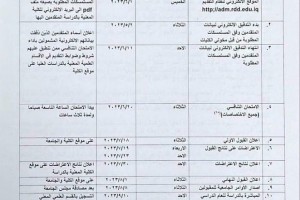
The College of Science at the University of Basrah organized a seminar entitled (Serological and Molecular Detection of Hepatitis Virus among Patients and Blood Donors in Basrah City South of Iraq)
by the graduate student (Noor Aqeel Khairi) The study aims The study aims to focus on the molecular detection (and genetic patterns) of the hepatitis virus B(HBV) and hepatitis virus C(HCV) from a total of 200 patients. and The study included several factors: gender, age, blood type, weight, family history, smoking habits, chronic diseases, duration of illness, medication use, and education level. The samples were verified by enzyme-linked immunosorbent assay (ELISA). DNA extraction and purity of the HCV HBV genome were also verified using a Nanodrop spectrophotometer. HBV was detected by molecular detection, which was done via polymerase chain reaction (PCR), by amplifying both the x and s genes. The results of gene classification indicated that HBV genotype C was the predominant; followed by genotypes D, B, C2, D3, F, and I. This study also contributed to the investigation of molecular detection, genotypes, and risk factors associated with hepatitis C virus infection. The study recommended raising public awareness of the risks of infection with viral hepatitis, applying PCR technology in addition to the ELISA test, and finally implementing a periodic screening program for people who have risk factors for infection with viral hepatitis.


.jpeg)
.jpeg)



